
Ashdod: The Dynamic Mediterranean Gateway
Ashdod, Israel's sixth-largest city, is a vibrant and modern port city on the Mediterranean coast. Known for its rich history and cultural diversity, Ashdod offers a unique blend of ancient and contemporary attractions, making it a fascinating destination for travelers. Begin your journey by exploring Ashdod's stunning beaches. The city's coastline boasts pristine sands and clear blue waters, perfect for sunbathing, swimming, and water sports. Yud-Alef Beach is particularly popular, offering excellent facilities and a lively atmosphere. For a more relaxed experience, visit Lido Beach, known for its serene environment and family-friendly vibe. Dive into the city's history at the Corinne Mamane Museum of Philistine Culture. This unique museum provides a deep insight into the ancient Philistine civilization that once thrived in the region. The Ashdod Yam Fortress, a remarkable archaeological site, offers another glimpse into the city's storied past with its well-preserved ruins and panoramic sea views. Ashdod is also a hub for arts and culture. The MonArt Arts Center hosts a variety of performances and exhibitions, showcasing local and international talent. The city’s rich culinary scene is another highlight, with a myriad of restaurants serving everything from traditional Israeli dishes to gourmet international cuisine. Shopping enthusiasts will enjoy the vibrant markets and modern malls. The Ashdod Mall and the Big Fashion Ashdod offer a blend of local and global brands, while the weekly open-air market is perfect for finding unique souvenirs and tasting local delicacies. Ashdod's strategic location makes it an ideal base for exploring other parts of Israel. With its efficient transportation links, you can easily take day trips to nearby cities such as Tel Aviv, Jerusalem, and the ancient port city of Jaffa.
Local tips in Ashdod
- Visit the beaches early in the morning to avoid the crowds and enjoy a peaceful swim.
- Check the schedule at the MonArt Arts Center to catch a live performance or art exhibition during your stay.
- Try local dishes at the city's food markets for an authentic taste of Ashdod's culinary scene.
- Bring comfortable walking shoes as exploring the historical sites and markets can involve a lot of walking.
- Use Ashdod as a base to explore nearby attractions in Tel Aviv and Jerusalem, both just a short drive away.
Ashdod: The Dynamic Mediterranean Gateway
Ashdod, Israel's sixth-largest city, is a vibrant and modern port city on the Mediterranean coast. Known for its rich history and cultural diversity, Ashdod offers a unique blend of ancient and contemporary attractions, making it a fascinating destination for travelers. Begin your journey by exploring Ashdod's stunning beaches. The city's coastline boasts pristine sands and clear blue waters, perfect for sunbathing, swimming, and water sports. Yud-Alef Beach is particularly popular, offering excellent facilities and a lively atmosphere. For a more relaxed experience, visit Lido Beach, known for its serene environment and family-friendly vibe. Dive into the city's history at the Corinne Mamane Museum of Philistine Culture. This unique museum provides a deep insight into the ancient Philistine civilization that once thrived in the region. The Ashdod Yam Fortress, a remarkable archaeological site, offers another glimpse into the city's storied past with its well-preserved ruins and panoramic sea views. Ashdod is also a hub for arts and culture. The MonArt Arts Center hosts a variety of performances and exhibitions, showcasing local and international talent. The city’s rich culinary scene is another highlight, with a myriad of restaurants serving everything from traditional Israeli dishes to gourmet international cuisine. Shopping enthusiasts will enjoy the vibrant markets and modern malls. The Ashdod Mall and the Big Fashion Ashdod offer a blend of local and global brands, while the weekly open-air market is perfect for finding unique souvenirs and tasting local delicacies. Ashdod's strategic location makes it an ideal base for exploring other parts of Israel. With its efficient transportation links, you can easily take day trips to nearby cities such as Tel Aviv, Jerusalem, and the ancient port city of Jaffa.
When is the best time to go to Ashdod?
Iconic landmarks you can’t miss
פארק אשדוד ים
Discover the lush landscapes and recreational charms of Ashdod Park, a perfect urban getaway for relaxation and fun in Ashdod, Israel.
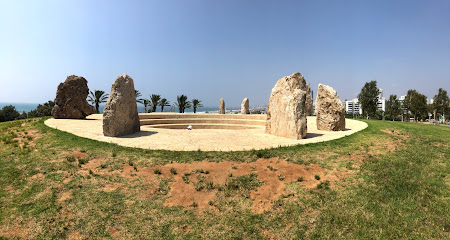
Amphi Ashdod
Experience the vibrant cultural scene at Amphi Ashdod, where stunning architecture meets world-class performances by the Mediterranean coast.
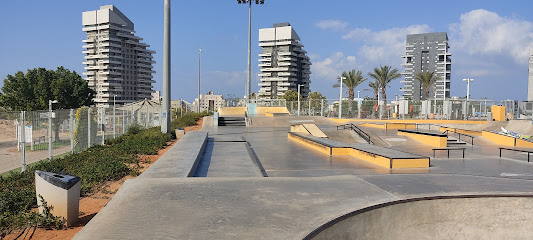
Lachish River Park
Explore Lachish River Park in Ashdod, a breathtaking natural oasis perfect for hiking, birdwatching, and enjoying the tranquility of nature.
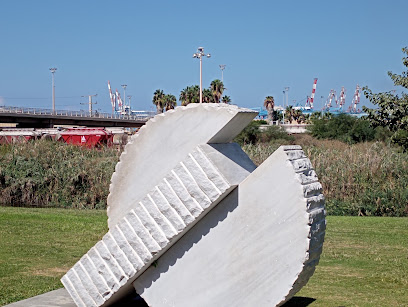
Ashdod Yam Fort
Discover the rich history and stunning coastal views of Ashdod Yam Fort, a must-visit destination on Israel's Mediterranean coast.
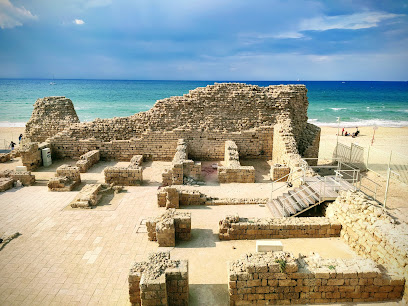
The Eye of the Sun, by Motti Mizrachi
Discover the Eye of the Sun in Ashdod - a stunning monument symbolizing vision and hope, blending modern art with the beauty of the Mediterranean coastline.
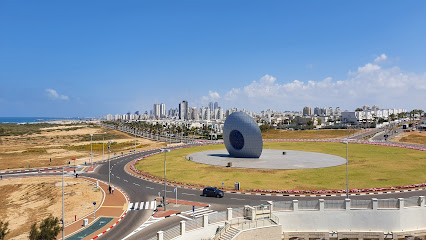
Museum of Philistine Culture
Discover the captivating world of the ancient Philistines at the Museum of Philistine Culture in Ashdod, a must-visit for history enthusiasts.
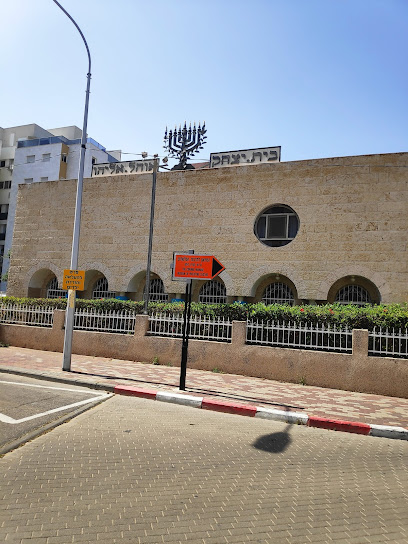
Ashdod Museum of Art
Discover the Ashdod Museum of Art, where contemporary creativity and cultural heritage converge in a stunning architectural setting.
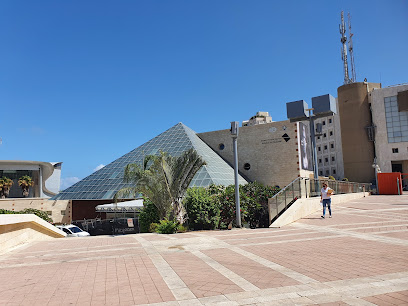
Port of Ashdod
Experience the vibrant atmosphere of the Port of Ashdod, Israel's largest port, where maritime charm meets rich cultural experiences by the Mediterranean Sea.
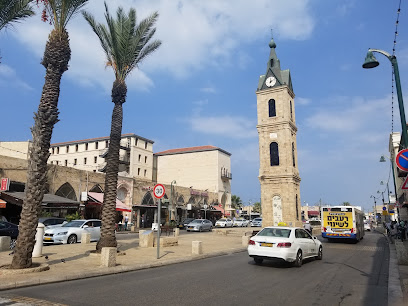
Ashdod Sand Dune
Explore the stunning Ashdod Sand Dune, a natural preserve offering breathtaking views and diverse wildlife along Israel's beautiful Mediterranean coastline.
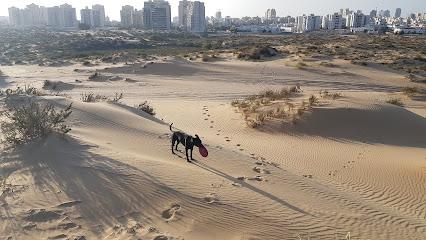
Ashdod Ad Halom
Discover the vibrant city of Ashdod from Ashdod Ad Halom, a modern train station connecting you to stunning beaches, local markets, and cultural treasures.
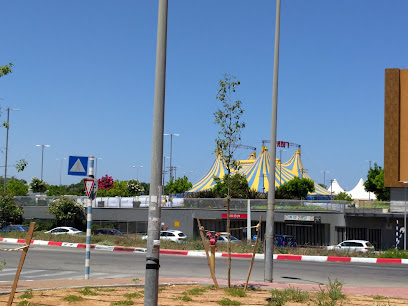
Tel Ashdod
Explore Tel Ashdod, the archaeological gem offering a glimpse into ancient Philistine civilization along Israel's Mediterranean coast.
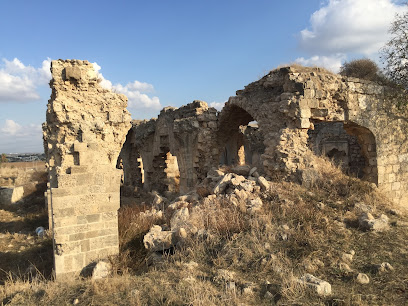
AshdodNewsRU - Новости Ашдод /Русская улица
Explore Ashdod through the lens of AshdodNewsRU, your guide to local events, culture, and community insights in this vibrant coastal city.
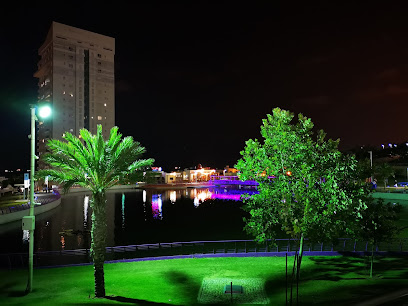
מגדלור אשדוד
Explore Ashdod, Israel's gem on the Mediterranean, where ancient history meets modern leisure and cultural vibrancy.
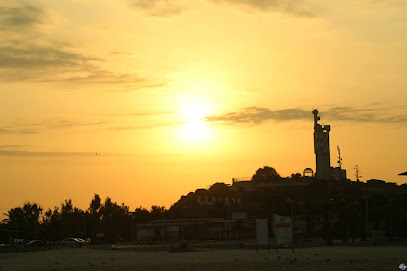
Unmissable attractions to see
Yad Vashem
Explore Yad Vashem in Jerusalem, a profound Holocaust memorial and museum that honors the victims and educates visitors on this impactful history.
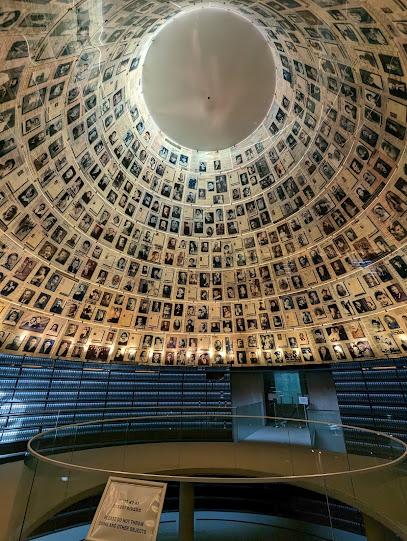
Jaffa Flea Market
Explore the eclectic charm of Jaffa Flea Market, where treasures and local flavors come together in the heart of Tel Aviv-Yafo.
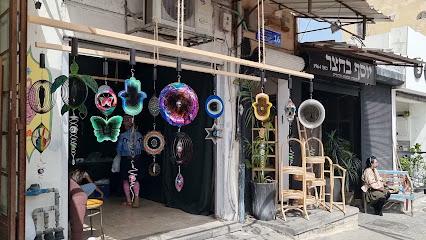
The Clock Tower
Experience the historic elegance of The Clock Tower in Tel Aviv-Yafo, a must-visit landmark that embodies the city's rich cultural tapestry.
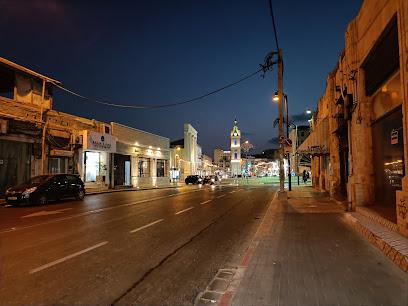
פארק אשדוד ים
Explore the lush landscapes of Ashdod Park, a serene haven in the heart of Ashdod, perfect for relaxation and recreation.
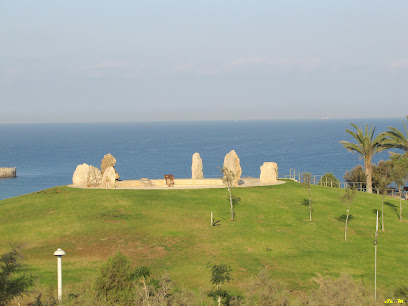
Midron Yaffo Park
Discover tranquility and stunning views at Midron Yaffo Park, a beautiful retreat along the Tel Aviv-Yafo coast, perfect for nature lovers and culture enthusiasts.
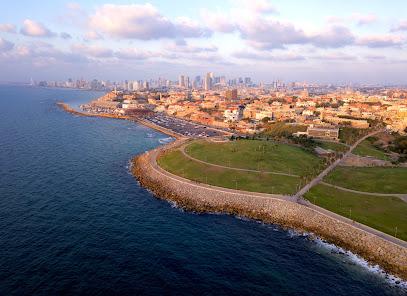
Beit Guvrin-Maresha National Park
Explore the breathtaking Beit Guvrin-Maresha National Park, where ancient history and stunning natural landscapes come together for an unforgettable adventure.
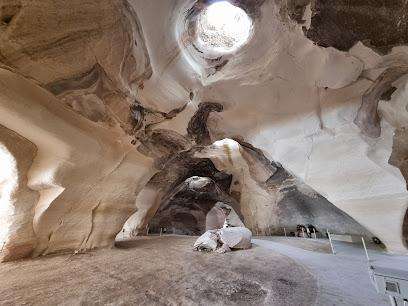
Pirate Park
Discover the whimsical world of adventure and nature at Pirate Park, an enchanting destination for families and thrill-seekers alike.
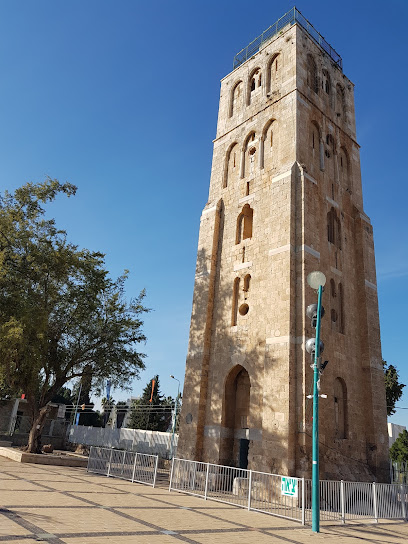
Sataf
Explore the serene landscapes of Akhvat Akhim Forest in Tzova, a perfect getaway for nature lovers and adventure seekers alike.
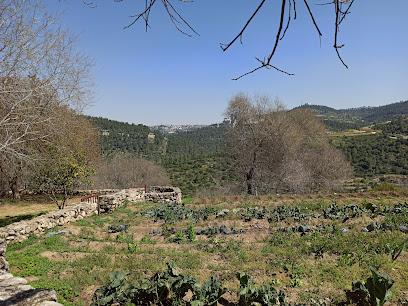
Lachish River Park
Experience the tranquility of Lachish River Park in Ashdod, where nature meets art along the enchanting riverbank.
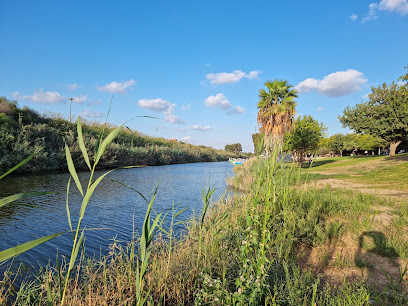
Ashdod Yam Fort
Explore the historic Ashdod Yam Fort, a captivating blend of ancient ruins and stunning Mediterranean views, perfect for history lovers and beachgoers alike.
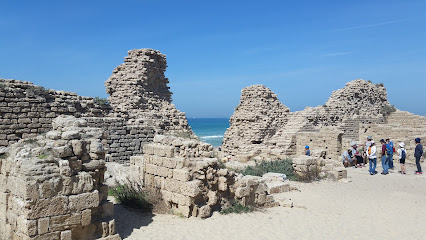
St. Peter's Church
Discover the architectural beauty and spiritual ambiance of St. Peter's Church, a historical landmark in the heart of Tel Aviv-Yafo.
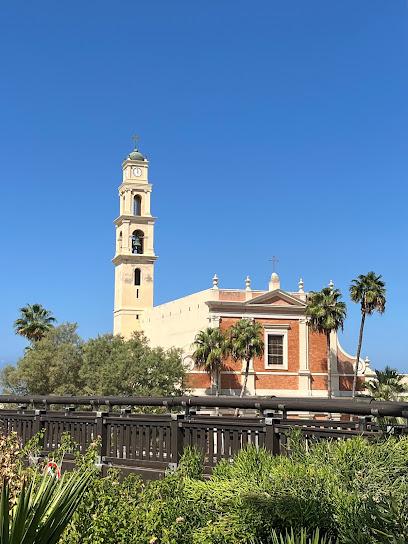
Elisheva Garden
Experience the serene beauty of Elisheva Garden in Ashdod, a perfect family-friendly park with stunning sea views and lush landscapes.
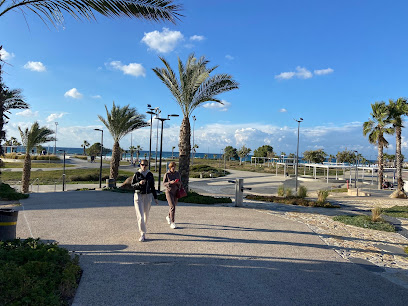
Ben Gurion Park
Explore the lush landscapes and serene environment of Ben Gurion Park in Ashdod, a perfect retreat for relaxation and outdoor fun.
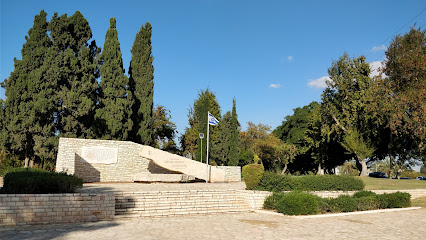
Abrasha Park
Discover the tranquility of Abrasha Park in Tel Aviv-Yafo, where stunning sea views and lush landscapes create the perfect urban retreat.
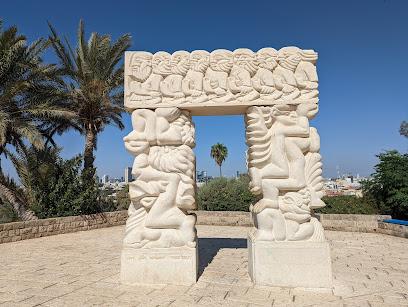
Church of Saint John the Baptist
Explore the tranquil beauty and historic significance of the Church of Saint John the Baptist in Jerusalem, a must-visit spiritual sanctuary.
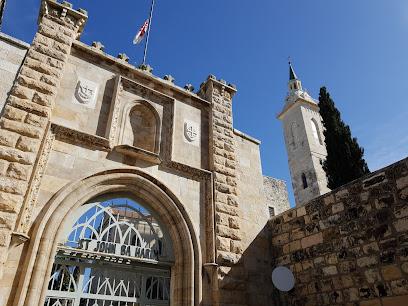
Essential places to dine
Gambrinus
Discover exquisite flavors at Gambrinus in Ashdod – a must-visit restaurant offering a delightful mix of local and international cuisine.
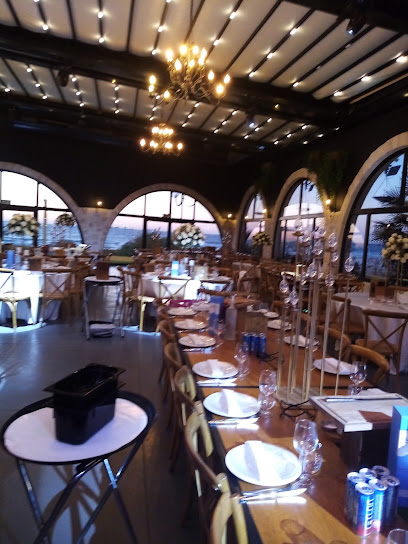
Petra Restaurant
Experience authentic Georgian cuisine at Petra Restaurant in Ashdod—where tradition meets taste in every dish.
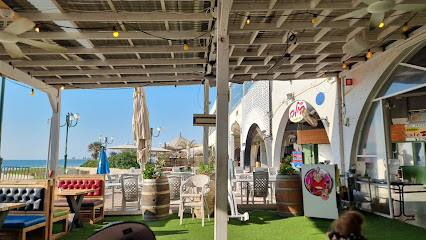
פינטה אשדוד
Discover exquisite flavors at Pinta Ashdod - where local cuisine meets modern dining in a vibrant atmosphere.
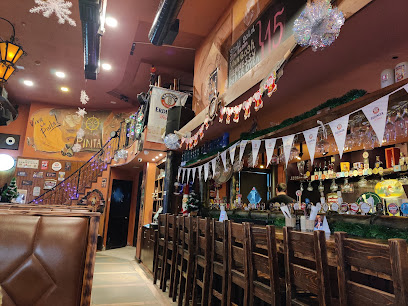
Calma
Experience exquisite dining at Calma in Ashdod – where local flavors meet breathtaking sea views.
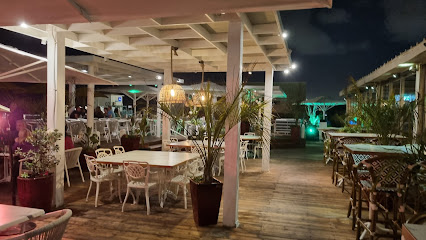
Castle
Discover Castle in Ashdod: A top-rated grill restaurant offering delicious cuisine and a welcoming atmosphere for all visitors.
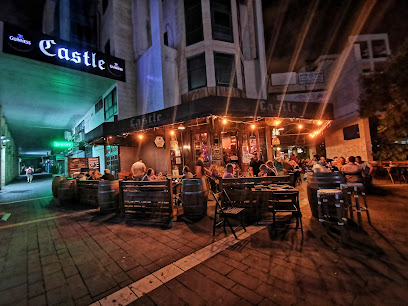
Idi Fish Restaurant
Experience authentic Israeli seafood at Idi Fish Restaurant in Ashdod – where every bite tells a story of freshness and flavor.
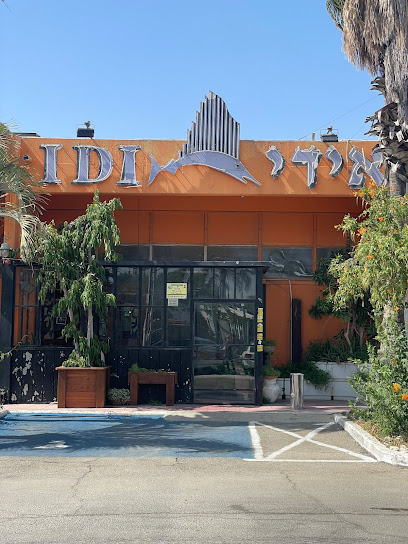
BBB
Discover BBB in Ashdod: A gourmet hamburger experience where every bite is crafted with passion and quality.
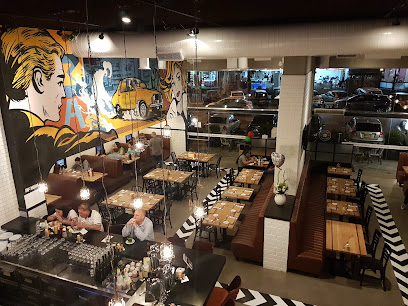
Corsar
Experience exquisite Mediterranean dining at Corsar in Ashdod's stunning marina—where flavor meets breathtaking views.
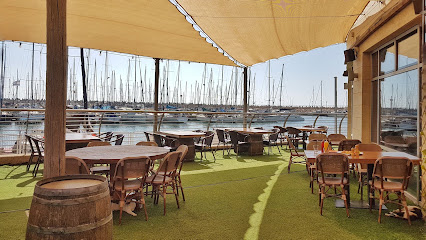
BABBI'S
Discover authentic Israeli flavors at BABBI'S - Ashdod's premier chophouse restaurant known for its exceptional meats and inviting atmosphere.
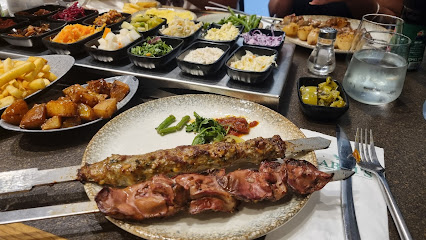
פבלה pavella
Discover Pavella in Ashdod - A culinary gem offering exquisite dishes blending traditional flavors with modern cuisine.
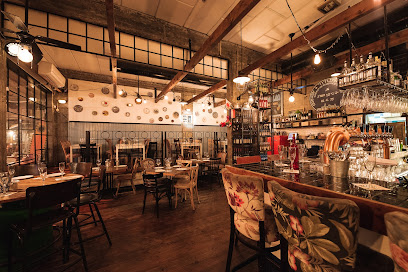
Puzzle Coffee - קפה פאזל
Discover Puzzle Coffee in Ashdod: where exceptional flavors meet stunning seaside views for an unforgettable dining experience.
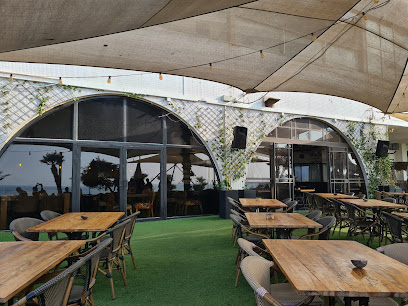
Rong'an Thai restaurant in Ashdod
Experience authentic Thai cuisine at Rong'an Restaurant in Ashdod - where every dish tells a story of flavor and tradition.
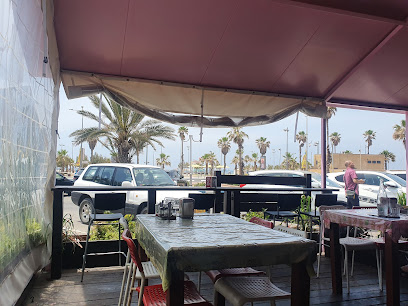
Pescado
Discover the exquisite flavors of kosher cuisine at Pescado, Ashdod's premier seafood restaurant offering an unforgettable dining experience.
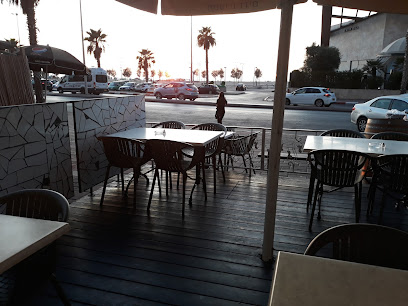
Bavaria
Savor authentic German flavors at Bavaria Restaurant in Ashdod – where hearty meals meet a welcoming atmosphere.
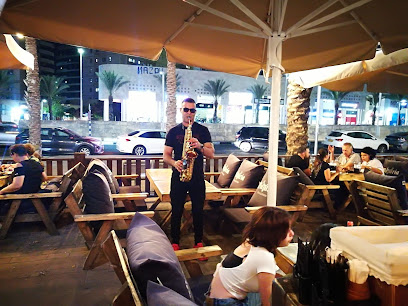
Story Garden Cafe
Discover the flavors of Ashdod at Story Garden Cafe - a cozy spot offering delicious kosher breakfasts and delightful café experiences.
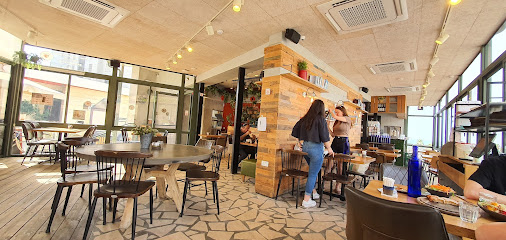
Markets, malls and hidden boutiques
BIG FASHION Ashdod
Explore BIG FASHION Ashdod: A premier shopping mall offering diverse stores, delightful dining, and vibrant entertainment in the heart of Ashdod.
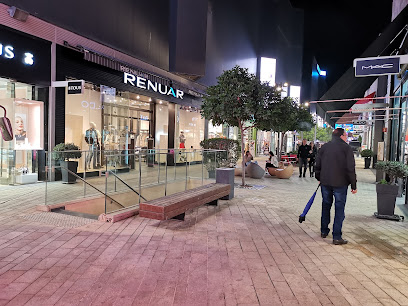
Sea Mall
Explore Sea Mall in Ashdod: A vibrant shopping paradise offering local and international brands, diverse dining, and family-friendly entertainment.
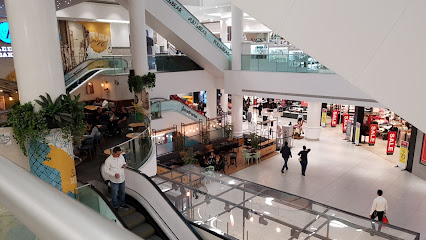
Osher Ad
Discover a vibrant grocery experience at Osher Ad in Ashdod, where local flavors meet international delights in a welcoming atmosphere.
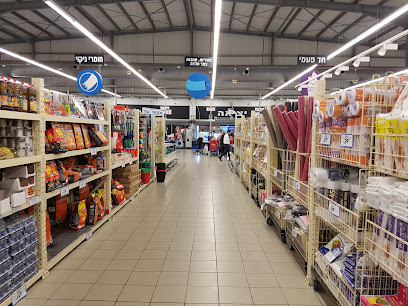
Homestyle אשדוד
Homestyle in Ashdod offers an extensive range of quality home goods, perfect for enhancing your living space with style and functionality.
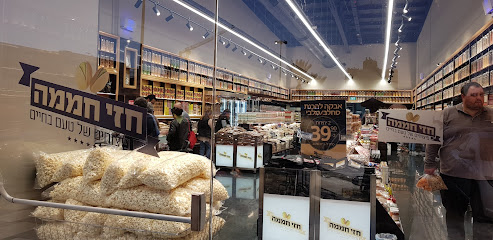
Tiv Taam
Experience the diverse flavors at Tiv Taam, Ashdod's premier supermarket offering fresh produce and gourmet international delicacies.
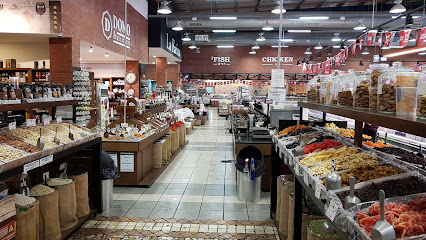
Home Center Ashdod
Discover an extensive range of home goods and improvement essentials at Home Center Ashdod, where style meets practicality.
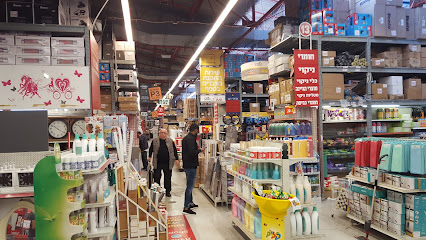
Star Center
Explore the vibrant Star Center in Ashdod, where shopping, dining, and entertainment come together for an unforgettable experience.
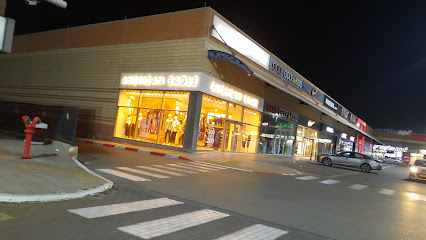
קניון סיטי - תחנה מרכזית אשדוד
Experience the vibrant shopping and dining scene at קניון סיטי, the ultimate retail destination in Ashdod, Israel.
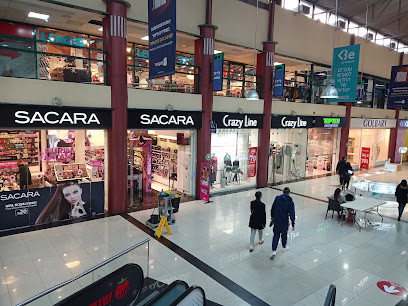
פוזה
Discover the ultimate fashion destination in Ashdod at פוזה, offering stylish clothing and shoes for every taste and occasion.
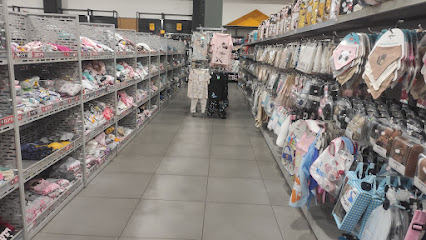
URBANICA Big Fashion Ashdod
Discover the ultimate shopping experience at Urbanica Big Fashion Ashdod, where fashion meets fun and flavor.
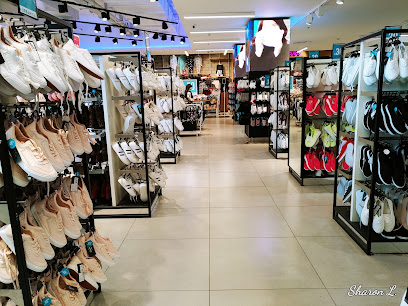
H & O
Discover trendy clothing and accessories at H & O in Ashdod's vibrant Star Center, perfect for fashion enthusiasts and casual shoppers alike.

Auto Depot Ashdod
Explore Auto Depot Ashdod for a diverse selection of quality auto parts and accessories in the heart of the Star Center shopping complex.

Tamnoon
Discover the latest fashion trends at Tamnoon in Ashdod, the ultimate clothing destination for style enthusiasts seeking quality and variety.
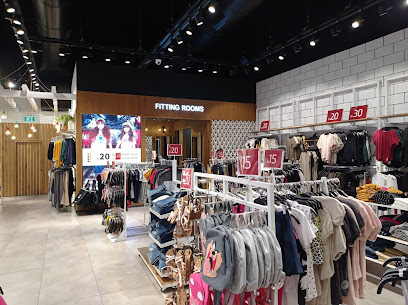
Big Shop Ashdod
Explore Big Shop Ashdod for a diverse selection of clothing, cosmetics, baby essentials, and toys in a vibrant shopping atmosphere.
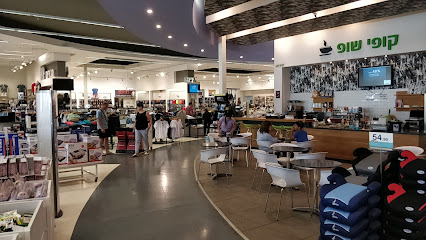
Beer Station סטאר סנטר
Discover the vibrant Beer Station in Ashdod, where a diverse selection of beers meets delicious food in a lively atmosphere perfect for socializing.
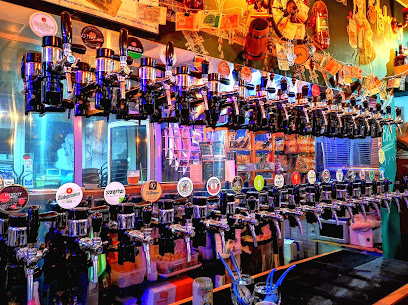
Essential bars & hidden hideouts
Castle
Discover the vibrant flavors and welcoming atmosphere of The Castle, Ashdod's premier grill restaurant for an unforgettable dining experience.
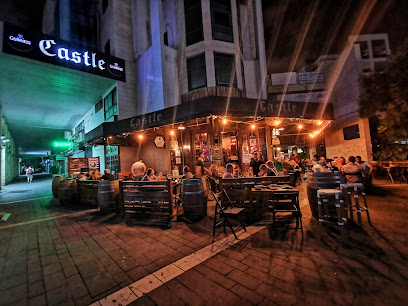
Sunset BLVD | Kitchen bar
Experience the vibrant flavors of American cuisine at Sunset BLVD, a lively kitchen bar in Ashdod, perfect for food lovers and social gatherings.
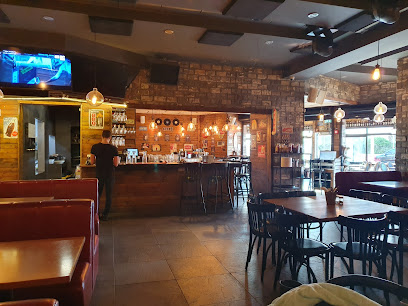
נאפופו בר אשדוד
Discover the lively nightlife of Ashdod at Napopo Bar, a vibrant spot for cocktails, music, and unforgettable memories.
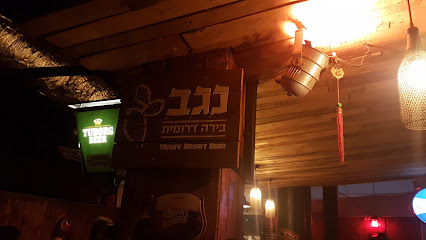
Matilda Bar
Discover the lively atmosphere and culinary delights at Matilda Bar, a premier gastropub in Ashdod, perfect for food lovers and socializers alike.
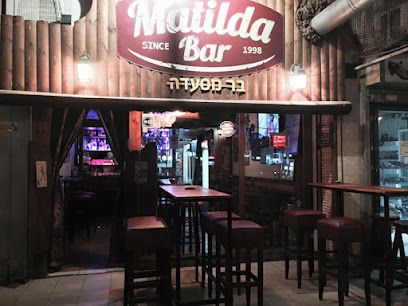
Lorence Bar
Discover the lively nightlife at Lorence Bar in Ashdod, where great drinks and a vibrant atmosphere await you.

שלומפר
Discover the spirited atmosphere of שלומפר, Ashdod's vibrant bar offering a unique taste of local nightlife and a diverse drink selection.
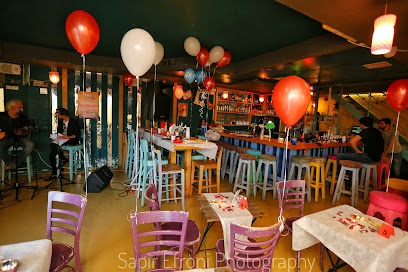
Beer Station Ashdod City
Discover the lively Beer Station Ashdod City, a perfect blend of local brews, delicious pub food, and vibrant atmosphere in the heart of Ashdod.
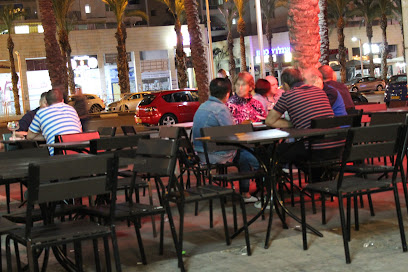
Something something Bar - סמטינג סמטינג
Discover the vibrant nightlife of Ashdod at Something Something Bar, offering exquisite cocktails and delicious tapas in a lively atmosphere.
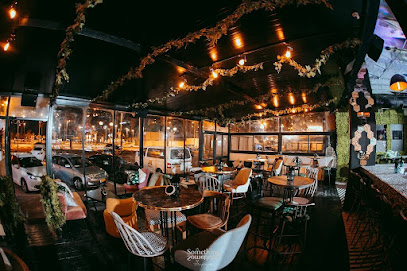
GODA גודה
Experience the vibrant nightlife and delicious cuisine at GODA in Ashdod, a bar and restaurant perfect for every occasion.

זרם
Experience the vibrant nightlife at Zerem Bar in Ashdod, where great drinks and a lively atmosphere await you.
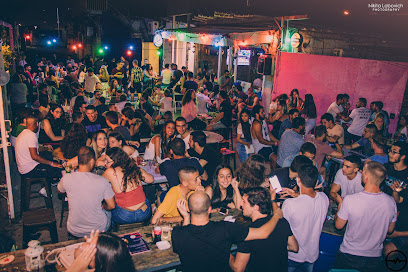
Shanti Cafe Bar Restaurant
Discover the vibrant atmosphere and delicious flavors at Shanti Cafe Bar Restaurant in Ashdod, a must-visit for food lovers and social butterflies.
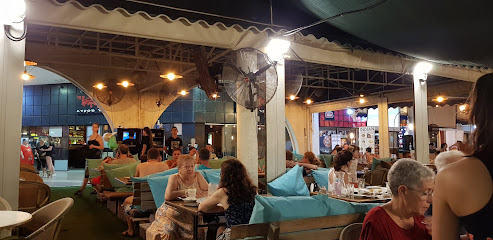
Drink Point Ashdod
Unwind at Drink Point Ashdod, where lively nightlife meets a welcoming atmosphere and an extensive drink selection.

Cavalo
Discover the lively atmosphere and delicious drinks at Cavalo, a top bar destination in Ashdod, perfect for socializing and enjoying local nightlife.
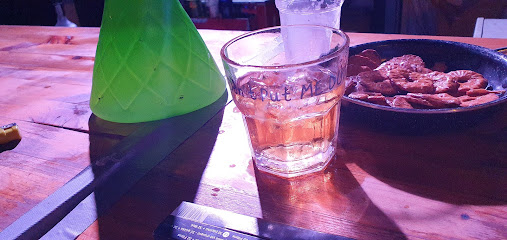
AVroom
Experience the vibrant nightlife of Ashdod at AVroom, a bar offering delicious drinks, a lively atmosphere, and a taste of local culture.
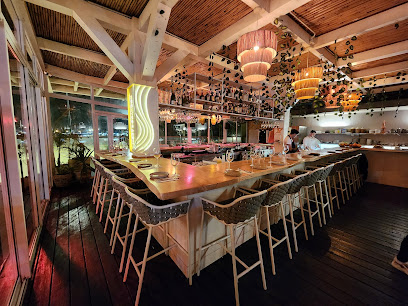
Local Phrases
-
- Helloשָׁלוֹם
[shalom] - Goodbyeלְהִתְרַאוֹת
[lehitra'ot] - Yesכֵּן
[ken] - Noלֹא
[lo] - Please/You're welcomeבבקשה
[bevakasha] - Thank youתודה
[toda] - Excuse me/Sorryסְלִיחָה
[selicha] - How are you?אֵיך אתה?
[eych atah?] - Fine. And you?טוב. ואתה?
[tov. ve'atah?] - Do you speak English?האם אתה מדבר אנגלית?
[ha'em atah medaber anglit?] - I don't understandאני לא מבין
[ani lo mevin]
- Helloשָׁלוֹם
-
- I'd like to see the menu, pleaseאני רוצה לראות את התפריט, בבקשה
[ani rotse lir'ot et hata'arich, bevakasha] - I don't eat meatאני לא אוכל בשר
[ani lo ochel basar] - Cheers!לחיים
[lechayim] - I would like to pay, pleaseאני רוצה לשלם, בבקשה
[ani rotse lishalem, bevakasha]
- I'd like to see the menu, pleaseאני רוצה לראות את התפריט, בבקשה
-
- Help!עזרה!
[ezra!] - Go away!לך לך!
[lech lech!] - Call the Police!קרא למשטרה!
[kara lamesh'tara!] - Call a doctor!קרא לרופא!
[kara larofe!] - I'm lostאני אבוד
[ani avud] - I'm illאני חולה
[ani choleh]
- Help!עזרה!
-
- I'd like to buy...אני רוצה לקנות...
[ani rotse liknot...] - I'm just lookingאני רק מסתכל
[ani rak mestakel] - How much is it?כמה עולה זה?
[kama oleh ze?] - That's too expensiveזה יקר מדי
[ze yakar me'od] - Can you lower the price?אתה יכול להוריד את המחיר?
[atah yachol lehorid et hamachir?]
- I'd like to buy...אני רוצה לקנות...
-
- What time is it?מה השעה?
[ma hasha'a?] - It's one o'clockזה שעה אחת
[ze sha'aachat] - Half past (10)חצי (עשר)
[chatzi (eser)] - Morningבוקר
[boker] - Afternoonצהריים
[tzohorayim] - Eveningערב
[erev] - Yesterdayאתמול
[etmol] - Todayהיום
[hayom] - Tomorrowמחר
[machar] - 1אחד
[echad] - 2שניים
[shnayim] - 3שלושה
[shlosha] - 4ארבעה
[arba'a] - 5חמישה
[chamisha] - 6שישה
[shisha] - 7שבעה
[shiva] - 8שמונה
[shmoneh] - 9תשעה
[tisha] - 10עשרה
[eser]
- What time is it?מה השעה?
-
- Where's a/the...?איפה יש...
[eifo yesh...] - What's the address?מה הכתובת?
[ma hak'tovet?] - Can you show me (on the map)?אתה יכול להראות לי (על המפה)?
[atah yachol lehar'ot li (al hamapa)?] - When's the next (bus)?מתי האוטובוס הבא?
[matay ha'otobus haba?] - A ticket (to ....)כרטיס (ל....)
[kartis (le....)]
- Where's a/the...?איפה יש...
History of Ashdod
-
Ashdod's history stretches back to the Bronze Age, around the 17th century BCE. It was one of the five cities of the Philistine pentapolis. The city is frequently mentioned in biblical texts and was known for its massive fortifications, which were significant in the ancient world. The Philistines were known for their conflicts with the Israelites, and Ashdod played a central role in these historical narratives.
-
In the 8th century BCE, Ashdod fell to the Assyrian Empire under the reign of Tiglath-Pileser III. The city was incorporated into the Assyrian provincial system, and its culture and architecture began to reflect Assyrian influences. This period brought economic prosperity to Ashdod, as it became a key administrative center.
-
Following the conquests of Alexander the Great, Ashdod became part of the Hellenistic world. The city was known as Azotus during this period and saw a blend of Greek and local cultures. Later, under Roman rule, Ashdod continued to thrive, benefiting from the Pax Romana which facilitated trade and stability in the region.
-
During the Byzantine period, Ashdod was an important Christian center, with numerous churches and religious institutions. The city continued to be significant following the Islamic conquest in the 7th century CE. Ashdod, known as 'Isdud' in Arabic, was integrated into the Islamic caliphates, maintaining its role as a regional hub.
-
Ashdod witnessed a series of power struggles during the Crusader and Mamluk periods. The Crusaders established fortifications in the area, but the city changed hands multiple times. Ultimately, the Mamluks dismantled many of these structures to prevent them from being used by future invaders.
-
Under Ottoman rule from the 16th century until World War I, Ashdod was a modest village. It was part of the larger administrative region of Palestine. The Ottoman period saw limited development in Ashdod, but it remained a small, yet continuous settlement.
-
Modern Ashdod was founded in 1956, following the establishment of the State of Israel. The city rapidly developed as a major port and industrial center. Today, Ashdod is known for its vibrant cultural scene, diverse population, and significant economic contributions, making it one of Israel's largest cities.
Ashdod Essentials
-
Ashdod is located along the Mediterranean coast in Israel, approximately 40 kilometers south of Tel Aviv. The nearest international airport is Ben Gurion Airport in Tel Aviv. From the airport, you can take a train to Ashdod, which takes around 30 to 45 minutes. Alternatively, you can take a bus or a taxi. Direct bus routes from major cities like Jerusalem and Tel Aviv are also available, making it convenient to reach Ashdod by road.
-
Ashdod offers various transportation options, including buses, taxis, and a train station linking to major cities. The city's public bus system is efficient and covers most areas. Taxis are readily available, and ride-sharing apps like Gett and Uber operate in the city. For those who prefer driving, car rental services are available, and the city's road network is well-maintained. Biking is also an option, with dedicated bike lanes in some parts of the city.
-
The official currency in Israel is the New Israeli Shekel (NIS). Credit and debit cards are widely accepted in Ashdod, including in most hotels, restaurants, and shops. ATMs are plentiful and accessible throughout the city. It's advisable to carry some cash for small purchases or in areas where card payments might not be accepted.
-
Ashdod is generally considered a safe city for tourists. However, as with any urban area, it's important to stay vigilant. Avoid walking alone at night in unfamiliar areas and keep an eye on your belongings in crowded places. The areas around the central bus station and the port can be less safe, so exercise caution and stay aware of your surroundings.
-
In case of emergency, dial 100 for police, 101 for medical emergencies, and 102 for fire services. Ashdod has several hospitals and medical clinics. The Assuta Ashdod Medical Center is one of the main hospitals in the city. Pharmacies are widely available for minor health issues. It is recommended to have travel insurance that covers medical emergencies.
-
Fashion: Do dress modestly, especially when visiting religious sites. Avoid wearing overly revealing clothing. Religion: Do respect local customs and traditions. Be mindful of the Sabbath (Friday evening to Saturday evening) when many businesses are closed. Public Transport: Do be respectful and give up your seat to elderly passengers. Don't eat or drink on public transport. Greetings: Do greet people with a handshake. It's common to say 'Shalom' (peace) as a greeting. Eating & Drinking: Do try local delicacies and accept food offerings graciously. Don't refuse hospitality, as it is considered impolite.
-
To experience Ashdod like a local, visit the local shuk (market) for fresh produce and authentic Israeli goods. Spend time at Ashdod's beautiful beaches like Lido Beach and Mei Ami Beach. Explore the Ashdod Yam Park, which offers a mix of archaeological sites and modern leisure facilities. Engage with locals, as they are often friendly and willing to share stories about the city's history and culture.
Nearby Cities to Ashdod
-
Things To Do in Holon
-
Things To Do in Jaffa
-
Things To Do in Ramat Gan
-
Things To Do in Modi'in
-
Things To Do in Tel Aviv
-
Things To Do in Herzliya
-
Things To Do in Hod Hasharon
-
Things To Do in Ra'anana
-
Things To Do in Raanana
-
Things To Do in Kfar Saba
-
Things To Do in Bethlehem
-
Things To Do in Jerusalem
-
Things To Do in Netanya
-
Things To Do in Beersheba
-
Things To Do in Hadera











